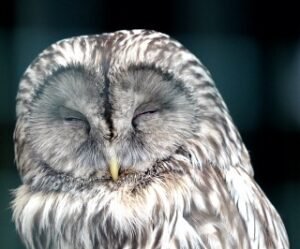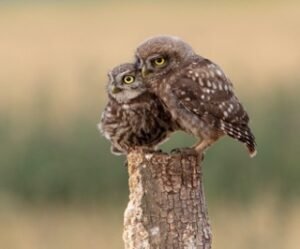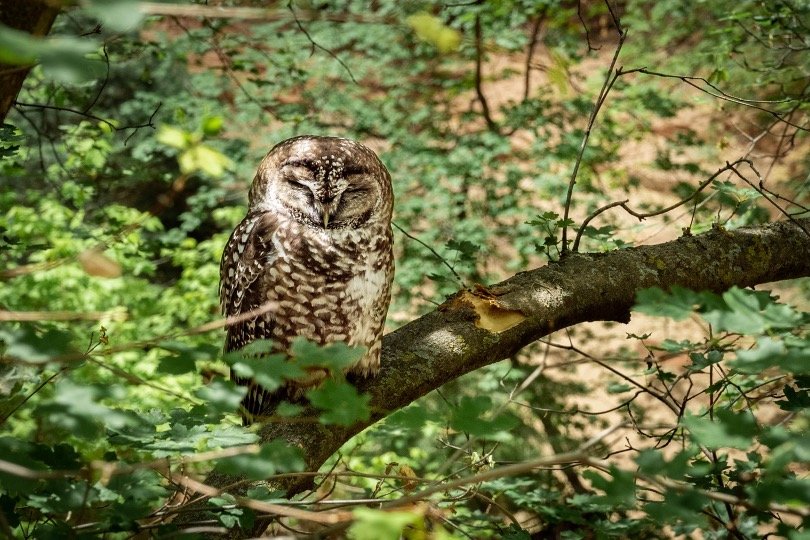
Do Owls Sleep On Their Stomach?
In spite of the fact that you’re undoubtedly familiar with owls and some of their hunting behaviors, you may not be familiar with their sleeping patterns in general. Owls are one-of-a-kind birds, with flat faces and big heads that distinguish them from other birds.
For those of you who are familiar with the urban legend that owls sleep on their stomachs, it is only half accurate. While in their nest, the majority of adult owls sleep standing up with their heads either facing forward or backward.
Because they are unable to hold their enormous heads up for extended periods of time, the baby owls occasionally sleep flat on their stomachs. It seems a little weird, but this period does not endure for very long.
The fact that there is even more interesting information regarding the sleeping habits of these birds will make you happy, I’m sure.
Do Owls Have a Sleep Cycle?
Owls are nocturnal animals that spend the most of their time in the dark. Some owls are active during the day, but this is not frequent. Sleep is essential for the health of nearly every living thing on this planet, including humans.
Owls and other birds require approximately 12 hours of sleep every day, on average. In their nocturnal nature, owls usually sleep during the day and awaken to become active throughout the night.
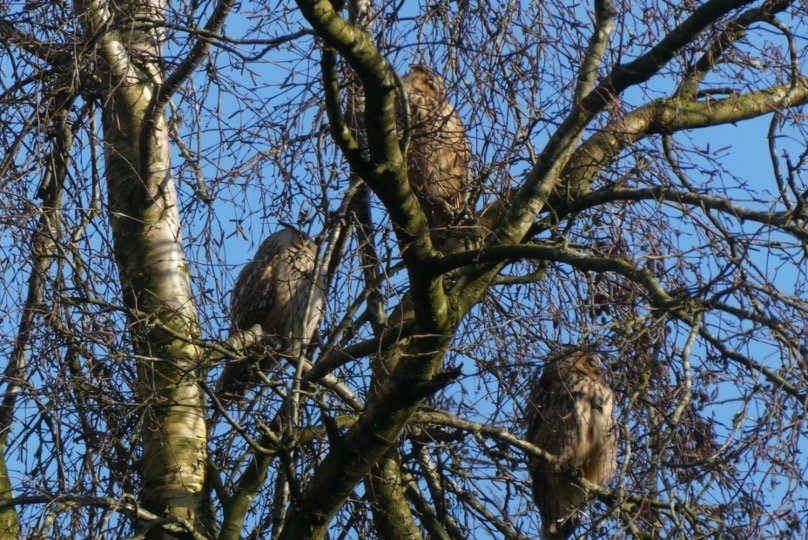
They do take short naps, and if there is a predator in the area, they may be active during the day as well. Regardless of the fact that they sleep, they do not sleep in the same way that most mammals do.
Baby Owl Sleeping Face Down Is Unbelievable (With Picture)
Owls sleep with half of their minds awake and the other half asleep. When they maintain a half-awake state, they are more able to defend themselves against neighboring predators.
What is the Sleeping Pattern of Owls?
Baby owls, often known as owlets, sleep in a manner that is quite distinct from the rest of the species. Adult owls sleep in a manner similar to that of other birds. During this time, they maintain a forward posture while standing on one or both legs and gripping onto a tree branch.
In contrast, owlets prefer to sleep face down on their bellies. They sleep in this position because their heads are too heavy for their juvenile muscles to support them while they sleep.
Sleeping Owls Are So Adorable: Pictures & Fun Fact
With increasing strength and control over their bodies, the owlets begin to sleep with their heads up, just like their parents do while they are sleeping.
What Does an Owl Do for Sleep?
Once they leave the nest, owls are solitary animals who do not live or sleep with their family members. There are only a few species of owls that sleep in groups in the winter.
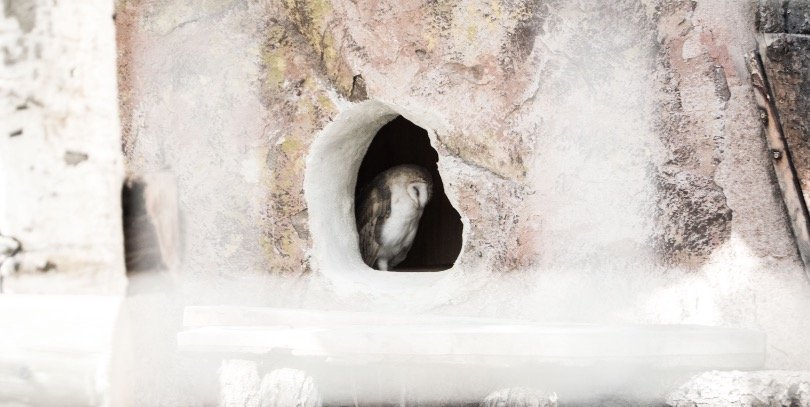
During the mating season, owls prefer to sleep alone in the vicinity of their nests or on a branch of a tree. From now through the end of the year, virtually any location is available. They can be found in a variety of locations, including hollow trees, buildings, chimneys, and other similar structures.
Do Owls Sleep at Night?
The vast majority of owl species do not sleep at night, although a few diverse species do sleep at night. The majority of these creatures are active at night, looking for food. Some birds hunt throughout the daytime as well.
Where Do Owls Sleep? Everything You Need To Know
Although owls are active during the day, their greatest time to observe them is at night, when they are out searching for their next meal. This time of day provides them with the best opportunity to sneak up on their prey and take advantage of their exceptional night vision.
Do Baby Owls Sleep On Their Stomach?
Yes baby owls sleep on their stomach but not all the time. Baby owls also move around a lot in their sleep and cannot stay in one place like adults do. They have so many soft feathers on their body that they can’t be used as a pillow because they will get crushed or smothered by their own downy feathers.
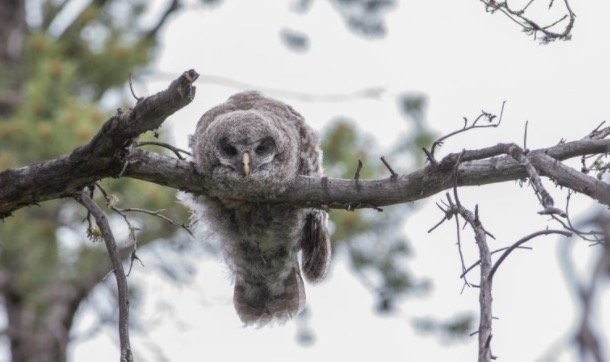
How Many Hours do Owls Sleep?
The short answer to how many hours do owls sleep is that they sleep up to 10-20 hours a day. There’s more to it than that, however, including some of their natural preferences and habits when it comes to their nighttime slumber.
In most cases, owls are nocturnal animals who aren’t particularly active during daylight hours. Because of their preference for low-light conditions and tendency toward evening activity, many people assume that owls don’t sleep at all.
Why do Owls Sleep During the Day?
There are many different varieties of owls, all of which have different sleeping habits. Some owls sleep during both day and night, some only at night, and others just during dusk or dawn.
Many people wonder why owls don’t simply get more sleep throughout their daytime so they can be active at night when there are better opportunities for hunting prey. There is no definitive answer to that question and it will likely remain a mystery forever.
What Happens When an Owl is Asleep?
When an owl sleeps, it is entirely unresponsive. It doesn’t hear anything that goes on around it. Of course, owls are prey to hawks and eagles so they have to be alert at all times while awake as well as while asleep.
Where Do Owls Nest? Everything You Need To Know
However, when they sleep they may look like they aren’t alive but you can rest assured they are not dead! They get their energy from eating and digesting their food which then converts into energy that gives them plenty of reason to go hunting throughout their day.
Do Owls Hoot in Their Sleep?
The short answer in no, owls don’t hoot in their sleep. One would assume that if an owl spends most of its day sleeping and it has large eyes capable of watching its surroundings, they would be hooting in their sleep.
However, it is true that owls are not known to be very vocal while they sleep. It is possible that since they spend most of their time sleeping, there isn’t much reason for them to vocalize in their sleep.
Take Away Message
Although it is true that owls sleep on their stomachs, this is only partially true. When they’re young, the owlets do sleep with their faces down. The huge skulls of mature adults, on the other hand, are robust enough to support themselves while they sleep.
This sleeping position is very unique in the bird world, and it is something that the majority of people are unaware of when it comes to these incredible predators.




